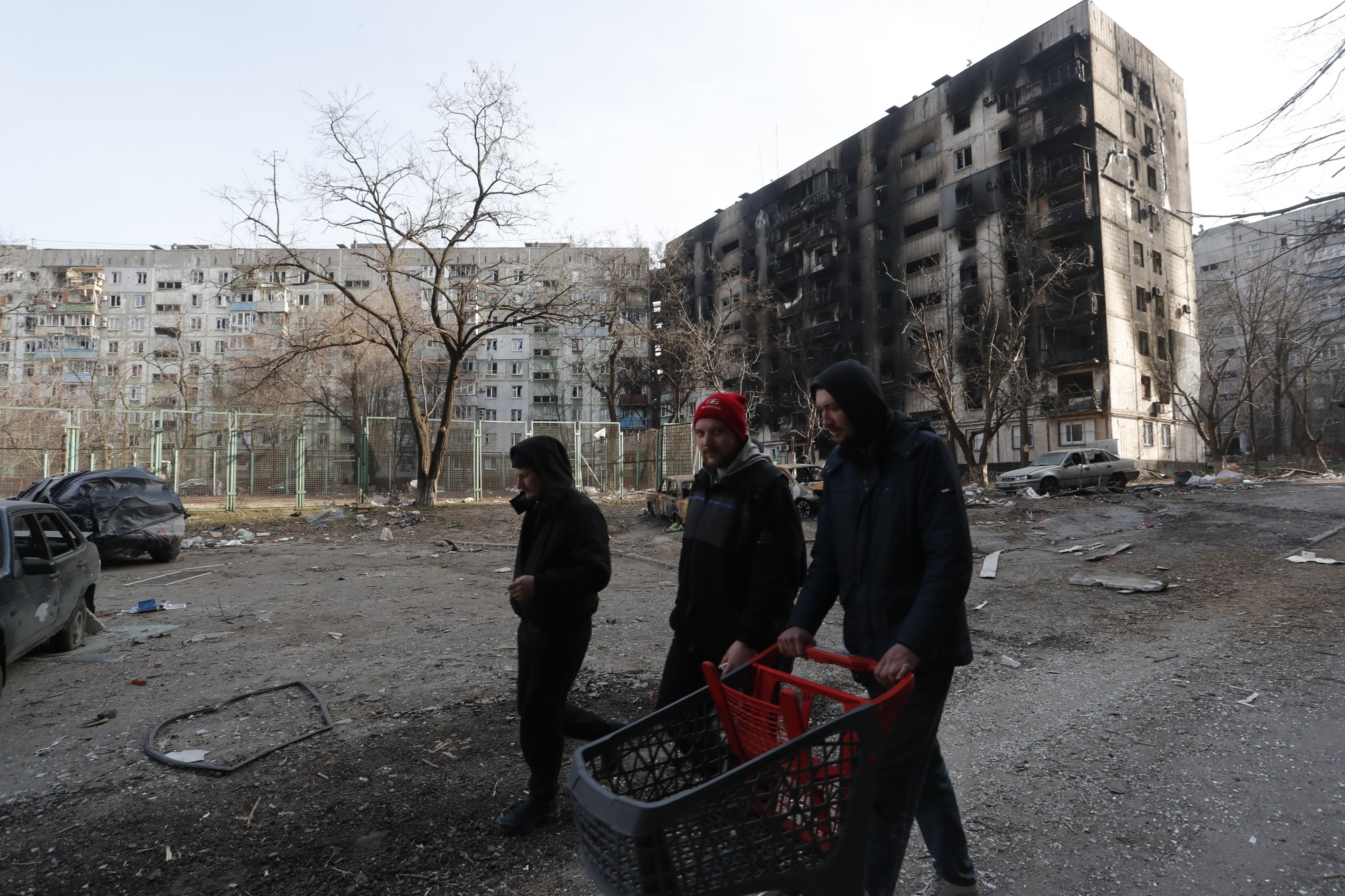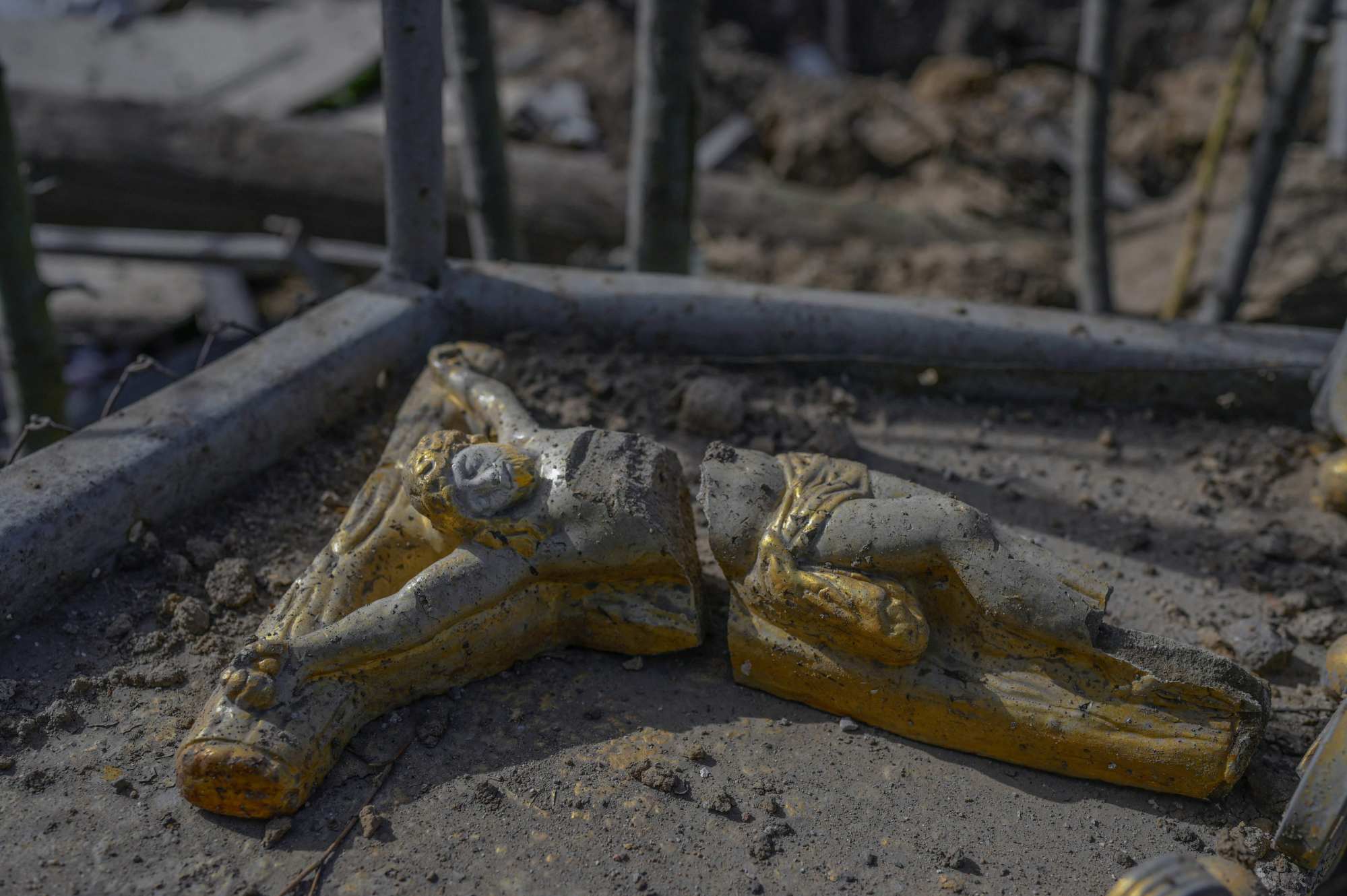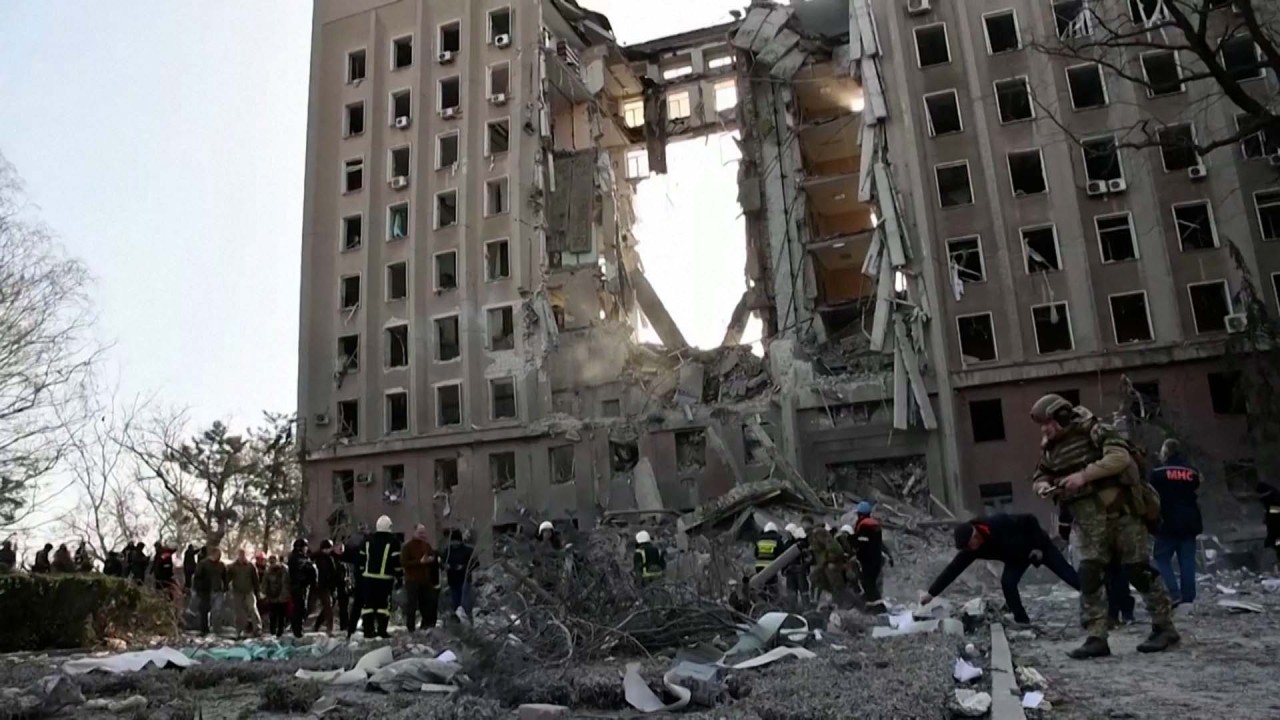
Russia’s Lavrov meets India’s Modi in Delhi, praising nation for not taking ‘one-sided’ view on Ukraine invasion
- Russian Foreign Minister Sergey Lavrov’s trip comes amid pressure on India to economically isolate Moscow; Lavrov said he hoped both would bypass sanctions
- Chinese Foreign Minister Wang Yi was in India last week but did not meet Prime Minister Narendra Modi; neither did Britain’s Liz Truss on Thursday
Russian Foreign Minister Sergey Lavrov met India’s Prime Minister Narendra Modi in New Delhi on Friday to shore up support from the Asian nation amid ongoing Western efforts to pressure world leaders to economically isolate Moscow.
“The Prime Minister reiterated his call for an early cessation of violence, and conveyed India’s readiness to contribute in any way to the peace efforts,” India’s foreign ministry said in a statement late on Thursday.

India has not backed any United Nations resolutions to condemn Russia, in a reflection of the Cold War-era partners’ deep bilateral ties.
“The Western world wants to reduce any meaningful relationship to the crisis in Ukraine … we appreciate that India is taking this situation in the entirety of facts, not just in a one-sided way,” Lavrov said.
Lavrov’s trip came on the back of US, British and European diplomats meeting their counterparts in New Delhi to discuss the sanctions that the US and its allies have imposed on Russian banks, oligarchs and companies.
The initial impact of these sanctions seem to have eased off and the rouble has made a recovery, prompting warnings from US officials that Washington will start getting tough on countries that circumvent the sanctions.
India’s External Affairs Minister Subrahmanyam Jaishankar, who met Lavrov on Friday afternoon, said bilateral relations had continued to grow with Modi and Russian President Vladimir Putin keeping in touch, but that the meeting was taking place in a “difficult international environment”.

“India, as you are aware, has always been in favour of resolving differences and disputes with dialogue and diplomacy,” he said.
A statement issued after their meeting by the External Affairs Ministry said the men discussed developments pertaining to Ukraine, the situation in Afghanistan and bilateral cooperation.
The statement said Jaishankar “emphasised the importance of cessation of violence and ending hostilities”.
He also noted that “global volatility in different domains is of particular concern to India” and that both countries’ ties across various dimensions should be “stable and predictable”.
Lavrov, who made remarks to the media in both English and Russian, said: “Friendship is the key word to describe the history of our relations and our relations were very sustainable during many difficult times in the past.”
He said strengthening ties with India was a key priority for Moscow, which was “interested in having a balanced world order”.
Russia and India would continue to implement projects in the areas of space, energy and science and technology, he said, later adding that Russia was ready to “supply to India any goods which they want to buy”. Russia would also increase the use of international currencies outside the US dollar for international trade, he said.

He said he believed it was possible to “bypass the artificial impediments which illegal unilateral sanctions by the West create”.
“This relates also to the area of military-technical cooperation,” he said. Russia is a key arms and energy supplier to India.
US Deputy National Security Adviser for International Economics, Daleep Singh, told reporters in New Delhi on Thursday that Washington did not want to see a “rapid acceleration” in energy imports from Russia.

On reports that Indian and Russian officials would discuss a rupee-rouble payment mechanism to maintain trade, Singh said: “We would not like to see mechanisms that are designed to prop up the rouble or to undermine the dollar-based financial system, or to circumvent our financial sanctions.”
Britain’s Truss met her opposite number Jaishankar on Thursday and said Britain respected India’s decision to buy discounted oil from Russia, while advocating stringent sanctions on Russia relating to the ports, gold and energy sectors.

Since the start of Russia’s invasion of Ukraine, India has bought millions of barrels of crude oil from Russia at a discount, pointing out that doing so would benefit its own citizens and that European countries still rely on Russian energy imports.
“When the oil prices go up, I think it is natural for countries to go out into the market and look for what are the good deals for their people,” Jaishankar was quoted as saying on Thursday.
Ian Hall, an international relations professor at Australia’s Griffith Asia Institute said while Russia and China shared the concern that India was moving closer to the US and that the ongoing crisis might accelerate that trend, Lavrov’s trip served an additional purpose.

“He wants to ensure India continues to refrain from direct criticism of Russia’s invasion, but also that India remains a significant customer of Russian arms,” said Hall.
The reception given to Lavrov is in contrast to Chinese Foreign Minister Wang’s trip to India last week, the first by a senior Chinese official since a deadly clash between troops at their disputed Himalayan border two years ago.
While Wang met Jaishankar and National Security Adviser Ajit Doval on his day-long trip, he did not meet Modi. Indian media, acting on a tip-off from government sources, reported that Wang’s request for the meeting had been denied.
Did Chinese minister’s visit meet India’s expectations or fuel scepticism?
Russian FM visits New Delhi as US, UK press India on Ukraine war stance
Claudia Chia, a research analyst at the Institute of South Asian Studies at the National University of Singapore said that while Quad alliance countries – the US, Australia and Japan – are urging fellow member India to take a firmer stand against the Russian invasion, “China and Russia want to make it look like India is on their side”.
“India is being sandwiched between these conflicting external expectations”, she said, and is having to navigate a diplomatic tightrope.
Additional reporting by Reuters


